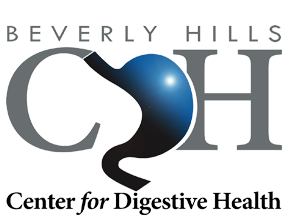Is a Ketogenic Diet Right for You?
BOOK APPOINTMENTWhat is ketosis?
Ketone bodies are water-soluble molecules used for energy and created when your body is fasting or short on carbohydrates through a process known as ketogenesis. When your body has an elevated number of these ketones floating around, it shifts into a state known as ketosis.
So when your glycogen stores are low (due to carb fasting or perhaps after a long workout), your fat starts creating fatty acids, and some of these fatty acids transform into ketone bodies. And in this state of ketosis, when your body needs energy, like for a workout, it turns to fatty acids as that source of energy (instead of its normal staple of glucose).
This is in large parts an evolutionary fail-safe from a time when carbohydrates were much harder to come by. In modern times, the majority of your energy comes from glycogen stores in your muscles created from the consumption of carbohydrates. But before grains could be processed, carbs came mostly from fresh fruits, and if you didn’t live in an area that had those readily available, you still needed a way to function and have energy. Hence, ketosis.
How do you reach ketosis?
The mainstay of the ketogenic diet is to get into ketosis by consuming a low-carb diet for a prolonged period. On average, these diets require less than 30 grams of carbohydrates a day, with the rest of your necessary calories coming from a combination of protein and fat. Ideally, your protein comes from lean, healthy meats such as chicken, fish, and preferably grass-fed and natural cuts of beef, as well as eggs, and — if you consume dairy — certain cheeses. For carbohydrates, you can’t venture into the territory of fruits, so you’re looking at a wide selection of super low carb vegetables.
By starving your body of these carbohydrates, you don’t have enough carbs to refill your glycogen stores. So to preserve your energy, your body converts fat instead into energy, through a process known as neoglucogenesis. As your body needs energy, it burns fat instead of carbs, and you lose weight.
Pros of the Ketogenic Diet
Quick weight loss: The most obvious benefit, and the reason low-carb diets are so popular, is that you lose weight quick in the first few days. Since glycogen stores retain water and you’re working to deplete them, massive amounts of water weight will disappear almost overnight. Additionally, once you reach ketosis, your body will be burning your unwanted fat directly.
Epilepsy benefits: While doctors are unsure why many believe that a low-carb diet can help regulate seizures in patients with epilepsy.
Potential cancer benefits: Cancel cells live off sugar, so some people think that if you cut your glucose intake, you can starve them out. Under that same logic, if you’re sticking to a low-carb diet, cancer cells are less likely to form because they will never have the food to do so.
Cons of the Ketogenic Diet
Start-up struggles. Cutting your body’s source of energy makes the first few weeks on the diet very rough. Expect headaches and massive fatigue until you hit a state of ketosis.
Can you be a high-level athlete? Many experts don’t think you can be a high-level athlete while staying in a state of ketosis. You simply don’t have enough energy to make it.
Restrictive diet: Keeping yourself below 30 grams of carbs is hard. You eliminate all fruits, starches, and many vegetables, leading to what is often a more expensive diet and one that is hard to follow, particularly when eating out.
Long-term metabolism: There are worries that a low-carb diet over a long period may damage your metabolism, particularly when paired with cardio exercise.
Our Blogs
Pelvic Floor Dysfunction?
Back to BlogsPelvic floor dysfunction is the inability to relax and coordinate your pelvic floor muscles to allow for smooth defecation. Fortunately, there are treatments available, including biofeedback, medications, and physical therapy. Reclaim strength and comfort...
Cutting-Edge, Compassionate Care Can Help You Find Hemorrhoids Relief
Back to BlogsHemorrhoids can be debilitating and painful, but treatment is available. If you’re suffering from hemorrhoids, make an appointment at the Beverly Hills Center for Digestive Health. We offer cutting-edge, compassionate care to help you find hemorrhoids...
Find Relief, Embrace Comfort, Your Solution to Gas and Bloating
Back to BlogsIf you’re experiencing excessive gas and bloating, solutions are available at the Beverly Hills Center for Digestive Health. From medication to diet coaching to surgery for severe cases, we’re equipped to deal with a wide variety of gastrointestinal...
Call to Schedule
Our office is available to answer your questions and evaluate your symptoms.

Phone
(310) 855-0222
Fax: (949) 404-6467
Hours
Mon - Fri: 9am – 5pm
Sat - Sun: Closed
